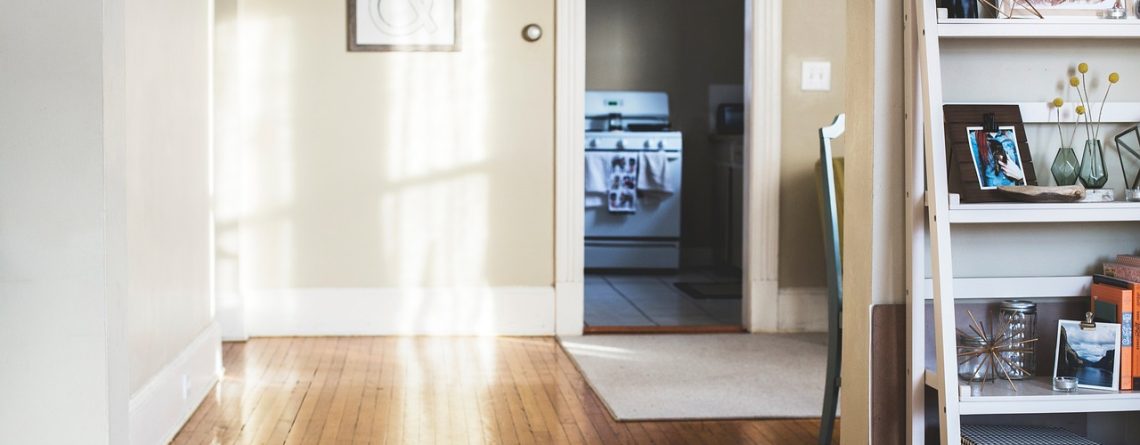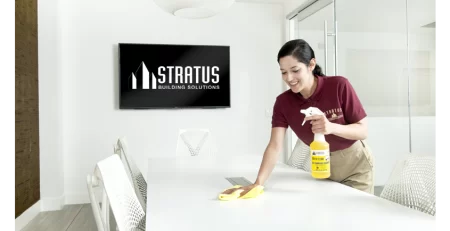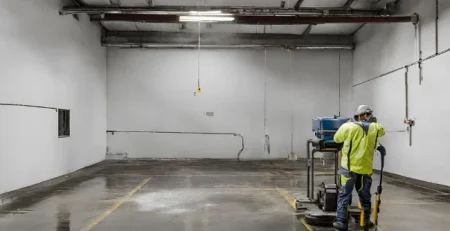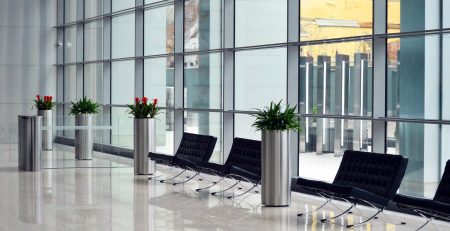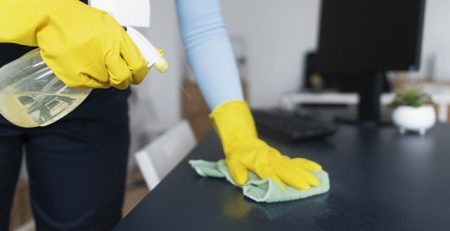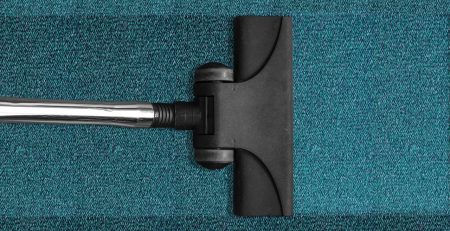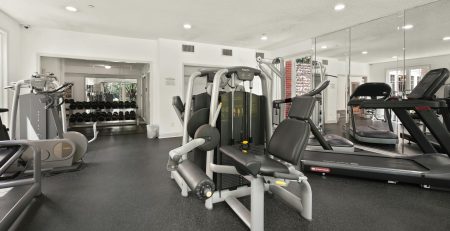Commercial flooring in retail stores is designed to be both durable and aesthetically pleasing. With proper care, these floors can last a long time and require less maintenance than other types of flooring. However, neglect can lead to dullness, deterioration, and hygiene issues.
In this guide, we will discuss effective methods for cleaning commercial floors to ensure their longevity. This includes the recommended cleaning frequency, appropriate equipment, the significance of maintaining clean floors, and the specific cleaning techniques to use. Our comprehensive guide will also highlight the positive impact that a well-maintained space can have on your customers. Emphasizing cleanliness in your retail store is crucial for making a strong impression.
Common Types of Retail Floors
There are many different types of flooring that are used in retail stores, including vinyl flooring, laminate flooring, porcelain tile, engineered hardwood, and concrete. The flooring for a retail store is chosen not only for its aesthetic, but also based on durability, ease of maintenance, and slip resistance to ensure safety in high-traffic areas.
The following are the main types of flooring found in retail stores:
- Engineered hardwood: Engineered hardwood is made with a real wood veneer for a top layer, and it is a durable flooring option. This type of flooring is easier to maintain than traditional wood flooring, more resistant to water, and hides scrapes and scuff marks with its rough surface texture. Engineered hardwood flooring should be cleaned with sweeping and vacuuming, followed by damp mopping.
- Vinyl flooring: Vinyl flooring is durable, waterproof, and usually scratch-resistant. It is also cost-effective, easy to maintain, and versatile as it comes in a variety of colors and patterns. Sweeping and occasional damp mopping is enough to clean and maintain vinyl flooring.
- Porcelain tile: Porcelain tile flooring is durable, versatile, and easy to clean, but it may not be as slip resistant as other flooring options. Regular cleaning of porcelain tile flooring will remove dirt, dust, and other debris that can make the floor slippery.
- Laminate: Laminate flooring is a cost-effective flooring option for retail stores that is also durable, water-resistant, scratch-resistant, and easy to maintain. However, it is important to remember that it is not completely waterproof as it can become damaged if it is wet for too long.
- Carpet tiles: Some retail stores may use carpet tiles which are great for sound absorption and aesthetics, but they require cleaning more often than hard surface flooring. Carpet tiles must be regularly vacuumed, and spot cleaning may be required to remove stains. A carpet cleaning machine should be used for deep cleaning.
- Polished concrete: Polished concrete is commonly found in large retail stores as it is highly durable and easy to maintain. These floors must be dust mopped daily and wet mopped weekly using a microfiber mop and pH-neutral concrete cleaner. Spills also must be cleaned immediately, or they could stain the concrete.
How Frequently Should Commercial Floors be Cleaned?
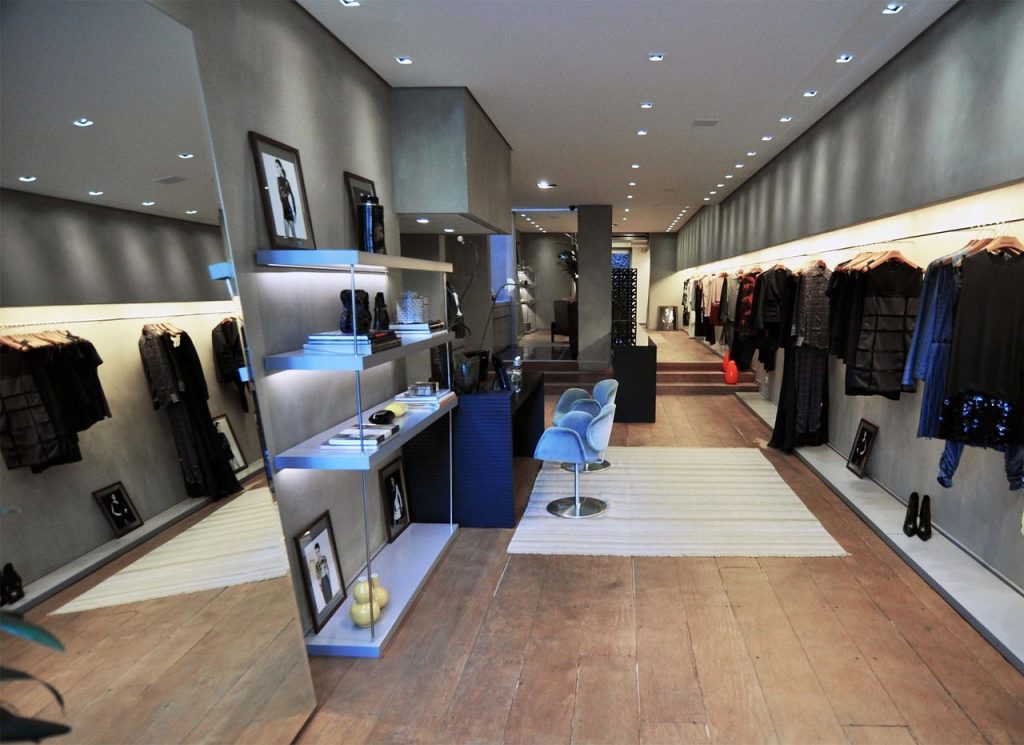
To maintain commercial flooring in retail stores, sweeping, vacuuming, and mopping should be done at least twice a week. If the area experiences heavy foot traffic and accumulates more dirt, consider increasing the frequency. Kitchen tiles require cleaning every two weeks, while bathroom tiles should be addressed at least once a week. To keep grout in good condition, spot clean every two to three months or as needed.
Proper cleaning of commercial floors necessitates the right supplies: dish soap or an all-purpose cleaner, a broom and dustpan, a rag or mop, a water bucket, and a dry towel or cloth.
Why is it Important to Keep Your Commercial Floors Clean?
Keeping the floors clean will ensure that your store is more inviting and welcoming for your customers, employees, and guests. Here are a few things that are important when it comes to keeping your retail store floors clean:
- It is crucial to keep your floors clean because dirt, debris, mold, and even bacteria can form on the surface of the flooring and between the tiles and panels.
- If the floor is not cleaned properly, there is a higher risk for allergies, infections, and diseases.
- If you have contaminants that break down grout and adhesives, it can shorten the lifespan of the floor.
- No matter how old the floor is, proper cleaning can make it look new and last longer.
Process for Cleaning Commercial Floors
One great thing about the most common types of commercial flooring is that they cannot be scratched easily or lose their shine. To help the flooring last longer, make sure you follow these steps so you can clean your commercial flooring properly:
- When sweeping or vacuuming, make sure to cover the entire floors, including corners, so you can collect all of the dirt buildup.
- When doing general mopping, mix hot water and mild detergent. If you would like to deep clean the floors, use 1-2 tablespoons of a commercial floor cleaning powder or ¼ of a cup of low sudsing detergent per gallon of water.
- When you are mopping the floor, you should use gentle strokes while following the same pattern for the whole room. Try not to miss any spots as any dirt that is leftover will get tracked around.
- If you are cleaning a larger space, the mop or rag will need to be rinsed regularly. This will cause the water to quickly get dirty. Make sure to refill the bucket so you do not leave a grimy film. If you do end up with grimy film on the floor, just soak a rag in hot water and white vinegar and wipe it away.
- To clean grout lines on tile flooring, spray on a grout cleaner and let it sit before rinsing it off. You can also use a mild bleach solution. If you have deeper stains, apply the bleach solution, wait about 10 minutes, and scrub the grout with a soft brush. Then mop and rinse the bleach away.
- Make sure to dry the floor to prevent water spots from forming on the surface.
- Put a wet floor sign in recently cleaned areas to let shoppers know to be careful when walking on wet flooring.
A Guide to Retail Cleaning
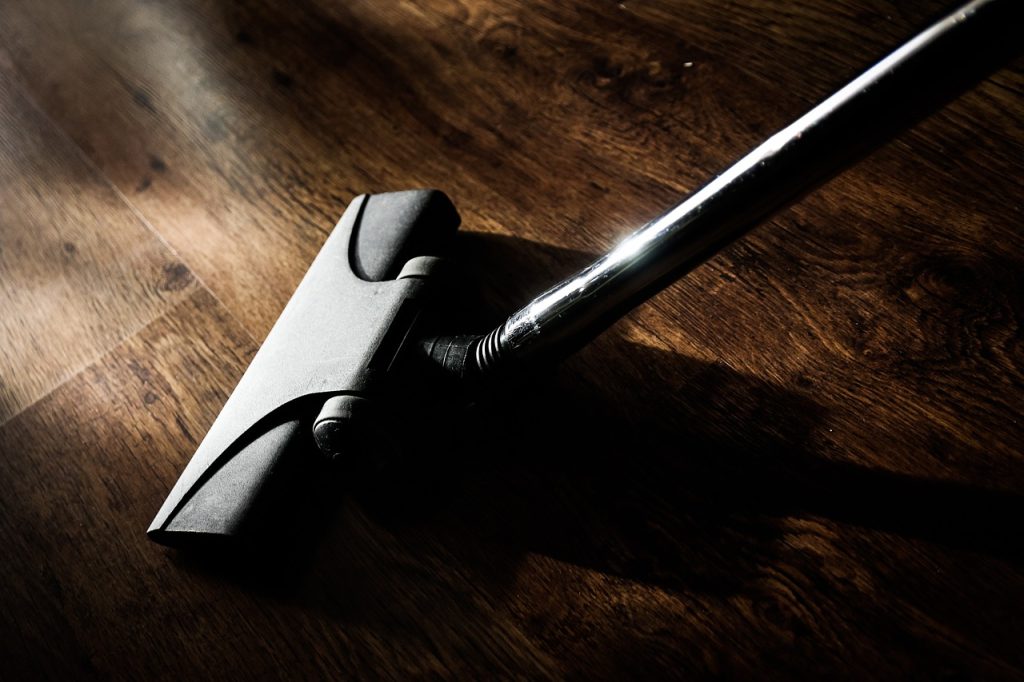
Maintaining a clean retail space is vital, as it significantly affects both employees and customers. A well-maintained, spotless store enhances your brand image and conveys to customers that you prioritize their loyalty and aim to ensure a pleasant shopping experience, ultimately fostering business growth. When considering commercial floor cleaning, keep these key points in mind:
- You should prioritize the safety of the staff while also making sure they can clean efficiently. The cleaning staff should have the proper cleaning equipment that is ergonomically designed to reduce the strain of repetitive tasks and increase efficiency. Choose well-known brands that will help your staff work smarter, not harder.
- Addressing floor hazards promptly is essential. Dirty or wet floors can lead to falls, resulting in significant problems for your business. Use high-quality sweepers and scrubbers with excellent water recovery capabilities to mitigate these risks. Additionally, employing detergent-free cleaners can enhance chemical handling and reduce environmental impact.
- A strategic approach is essential for cleaning a retail store. This involves ensuring that the floors are well-maintained to preserve their appearance over time. High-quality mats should be placed at the entryway to minimize dirt entering the premises. Additionally, using innovative cleaning products will ensure that the floors are cleaned thoroughly and efficiently.
- Carpets can enhance the appearance of your retail space, but regular cleaning is essential to maintain their appeal. This involves daily cleaning, interim solutions, spot treatments, and restorative care to keep your carpets looking attractive and inviting.
- To maintain hard floors, regularly remove surface dust. Utilize advanced equipment and scrubbers to clean thoroughly with minimal water. Periodic burnishing will restore their shine and refresh the finish. Always assess the type and condition of your floors before selecting appropriate products and cleaning methods.
- Polished concrete floors are very durable and easy to maintain, however they do require regular care. Making sure that you use the best practices when cleaning and maintaining these floors will increase their longevity and appearance.
How to Clean a Large Shop Floor
It can be a challenge to keep the flooring in large retail stores consistently clean and maintained. You can make it easier to clean large shop flooring by dividing the store into sections and making sure each section is thoroughly cleaned.
The following steps will help you effectively clean a large shop floor:
- Clear the area: Remove items from the areas being cleaned, including merchandise, shelving, and fixtures to clear the floor space.
- Sweep and vacuum: Sweep the area to remove large debris and use a commercial-grade vacuum to remove dust and dirt.
- Wet mop: Create a cleaning solution that includes the best floor cleaner for your type of floor and mop the floor in sections. Scrub heavily soiled areas with a brush before mopping.
How to Keep Retail Floors Clean
Maintaining clean floors in a retail store not only enhances its appearance but also ensures a safer environment for everyone. To keep your store’s flooring looking its best between deep cleanings, follow these simple yet effective steps:
- Sweep and vacuum often: Regular sweeping and vacuuming consistently removes dust, dirt, and other debris from the floor.
- Clean spills immediately: If there is a spill, make sure it is cleaned up right away to avoid slips and prevent stains.
- Properly mop the floor: Mop the floor using a neutral pH floor cleaner designed for your specific type of flooring and make sure to rinse the mop thoroughly to avoid coating the floor with a film of residue. You should also consider using microfiber mops because they are non-abrasive and effectively pick up dirt.
- Use floor mats: Putting floor mats at the store’s entrances helps reduce the amount of dirt and moisture that is tracked in by customers.
- Create a deep cleaning schedule: Deep cleaning the flooring is necessary to remove dirt and grime that has built up over time. Create a deep cleaning schedule and follow the above-mentioned tips so the flooring does not need to be deep cleaned as frequently.
Professional Commercial Floor Cleaning for Retail Stores
Customers and employees feel more comfortable in a clean and well-maintained retail store, and creating this environment starts with good floor cleaning. Cleaning the flooring in your retail space using quality cleaning products, methods, and equipment will remove dirt, dust, mold, and grime from the flooring to improve its appearance and help it last longer.
Are you in need of professional commercial floor cleaning for your retail store? Our professionals at Stratus Palm Beach use top-notch equipment and methods to effectively clean flooring in your retail space. To learn more about the floor cleaning services we offer for retail in the Palm Beach County, FL area, make sure to contact us.

